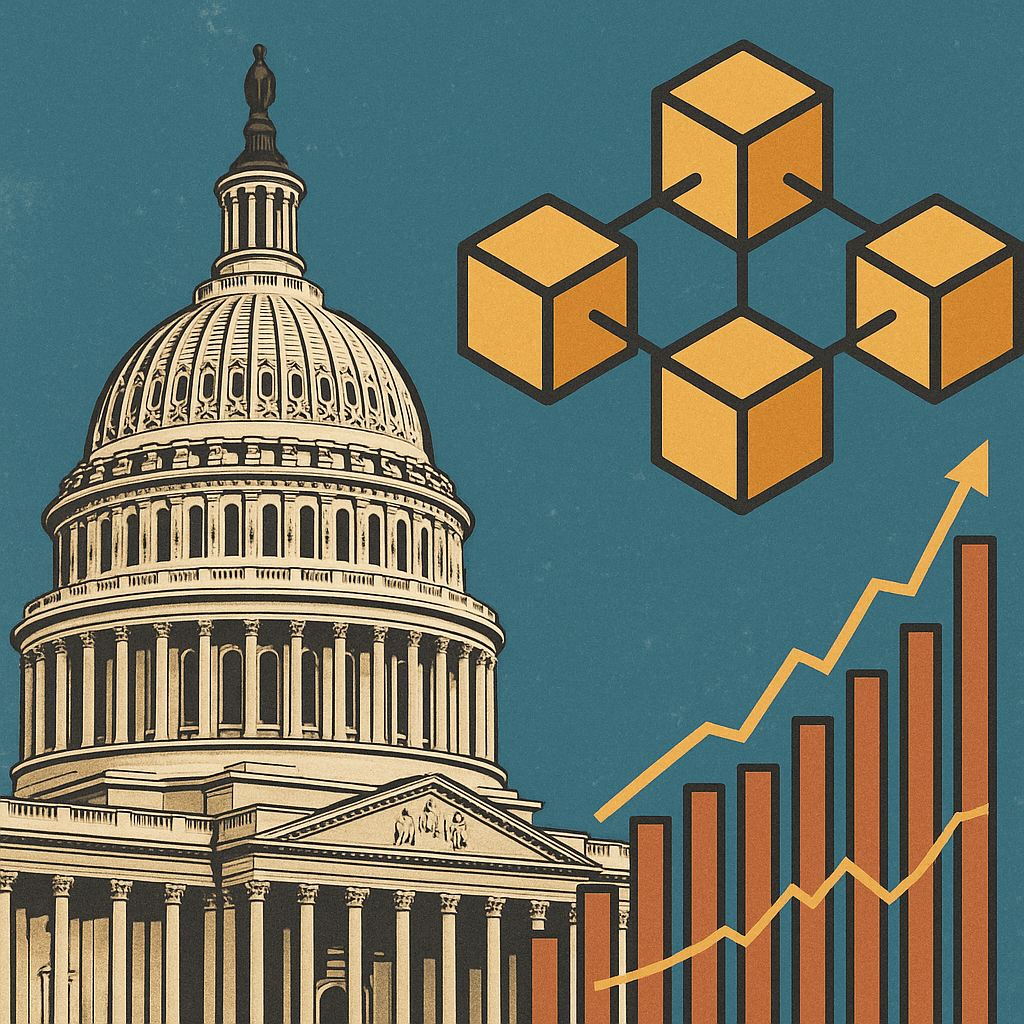In a landmark move for transparency, the U.S. Department of Commerce, led by Secretary Howard Lutnick, began publishing economic data, including GDP, on public blockchains on August 28, 2025. Announced at a White House cabinet meeting, this initiative, backed by President Donald Trump, leverages blockchain technology to ensure data integrity and accessibility. Partnering with oracle protocols Chainlink and Pyth Network, the U.S. is distributing key macroeconomic indicators across networks like Bitcoin, Ethereum, and Solana, marking a historic first for federal agencies. This article explores how Washington’s blockchain economic data publishing reshapes public trust and positions the U.S. as a Web 3 leader.
A New Era of Transparent Data
The initiative, prompted by the Deploying American Blockchains Act of 2025, involves anchoring cryptographic hashes of economic data to blockchains, ensuring immutability. Six indicators from the Bureau of Economic Analysis, including real GDP and the PCE Price Index, are now available on ten blockchains, including Arbitrum and Optimism. According to a Chainlink blog post, this enhances use cases in DeFi, prediction markets, and tokenized assets. The move addresses long-standing concerns about data manipulation, as blockchain’s tamper-resistant ledger provides a verifiable record, boosting public confidence.
Strategic Partnerships and Market Impact
The Commerce Department collaborated with crypto exchanges Coinbase, Gemini, and Kraken to cover blockchain transaction fees, while Chainlink and Pyth Network facilitate data distribution. The announcement triggered a market surge, with Pyth’s PYTH token soaring 70% to over $0.20 and Chainlink’s LINK gaining 5%, per Brave New Coin. This reflects growing investor enthusiasm for blockchain’s role in governance, aligning with the U.S.’s ambition to be the “blockchain capital of the world,” as Lutnick stated.
Challenges and Future Prospects
While blockchain ensures data integrity, it doesn’t guarantee source accuracy, a concern amid political debates over economic statistics. The initiative’s success depends on robust cybersecurity and clear governance frameworks. Looking ahead, the Commerce Department plans to expand datasets, potentially influencing global standards for blockchain-based data publishing.
In conclusion, Washington’s adoption of blockchain for economic data publishing in 2025 marks a pivotal step toward transparent governance. By integrating Web 3 technologies, the U.S. sets a precedent for modernizing public data systems, fostering trust and innovation. Stay informed as this initiative reshapes the intersection of blockchain and policy.




